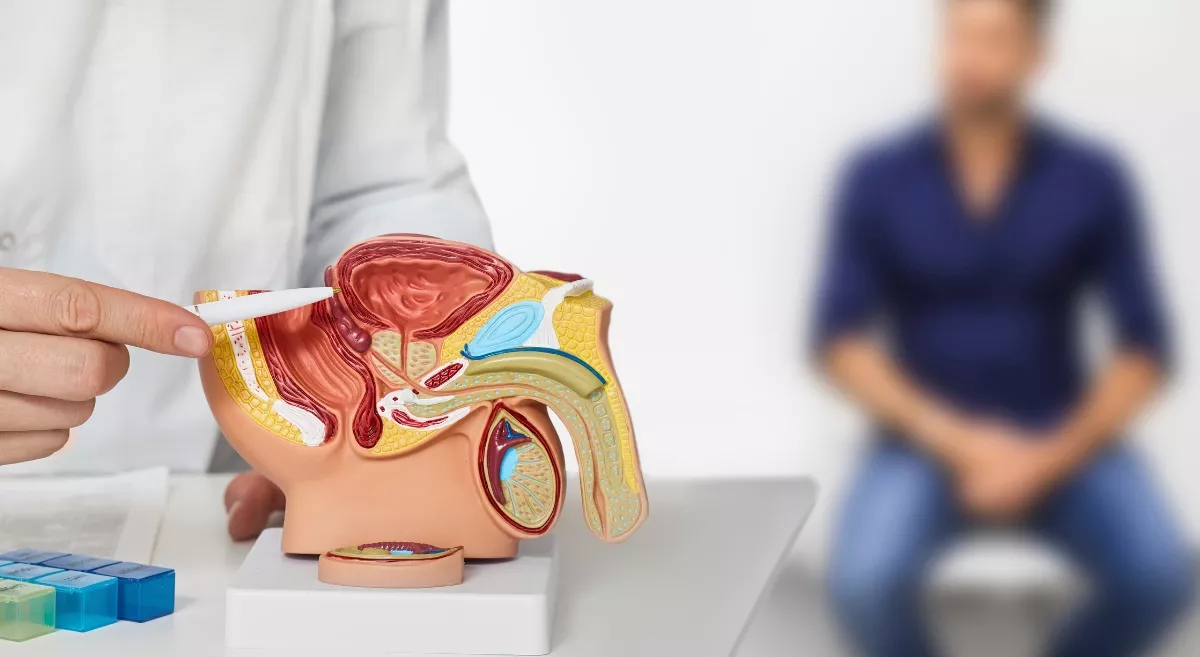Andrology is the field of medicine dedicated to male health, focusing on conditions affecting the male reproductive system and urological issues. Many men encounter these conditions at different stages of life, but early recognition and treatment can greatly improve outcomes. This blog discusses some of the most common andrological conditions and how to address them.
The common andrological conditions include
1. Erectile Dysfunction (ED)
Erectile dysfunction (ED) is the inability to get or maintain an erection suitable for sexual intercourse. It is very prevalent, especially in men over 40.
Causes: It can be caused due to physical issues like cardiovascular disease, diabetes, or hormonal imbalances. Stress, anxiety, or depression can also cause it.
Treatment: The treatment involves lifestyle changes such as exercise and quitting smoking. Additionally, PDE inhibitors are effective for many men. In more serious cases, surgical treatments like penile implants may be considered.
2. Benign Prostatic Hyperplasia (BPH)
BPH is the non-malignant enlargement of the prostate gland, which presses against the urethra, causing urinary issues like frequent urination, trouble starting, or a weak stream.
Causes: It’s primarily age-related, with hormonal changes (testosterone and dihydrotestosterone) playing a key role.
Treatment: Lifestyle modifications such as reducing caffeine and alcohol intake help with mild symptoms. Drug therapies include alpha-blockers or 5-alpha-reductase inhibitors. Advanced cases require surgical or minimally invasive procedures like TURP.
3. Male Infertility
Male infertility refers to the inability to conceive despite a year of unprotected intercourse. Approximately half of all couples with fertility issues suffer from male infertility.
Causes: Common causes are low sperm count, poor sperm motility, hormonal imbalance, or blockages that prevent sperm from being released.
Treatment: Treatment ranges from medicines to enhance sperm production to surgical intervention of blockages depending on the cause. Some assisted reproductive technologies, such as in vitro fertilization (IVF), can also help couples conceive.
4. Peyronie’s Disease
Peyronie’s disease is the formation of scar tissue within the penis that results in a noticeable bend or curve during an erection. This actually causes quite a bit of pain, as well as making sexual intercourse very difficult.
Causes: It is thought to be caused by trauma or injury to the penis, though the exact cause isn't known. Genetics are said to play a role as well.
Treatment: Mild cases may not need treatment, while more severe cases may require medications or injections. In extreme cases, surgery is considered to correct the curvature.
5. Hypogonadism
Hypogonadism occurs when the body doesn’t produce enough testosterone, affecting sexual function, development, and general well-being.
Causes: It can be due to testes problems or issues in the hypothalamus or pituitary gland. This can also happen as a result of old age, genetic factors, and other medical conditions.
Treatment: Testosterone replacement therapy (TRT) is the primary treatment. The treatment can be done through injections, gels, patches, or pellets.
Tips to prevent Andrological Issues
While some andrological conditions are unavoidable due to age or genetic predisposition, most can be prevented or minimized through lifestyle modifications and proper health management. Here are some general prevention practices that can be applied to most of the andrological conditions:
- Healthy Diet: A healthy diet rich in fruits, vegetables, whole grains, and lean proteins can help minimize the risk of many of the conditions, including ED and BPH.
- Regular Exercise: Physical exercise encourages healthy blood flow, maintains an ideal weight, and prevents cardiovascular diseases that are complications with ED and other andrological disorders.
- Avoid Smoking and Excessive Alcohol Consumption: Smoking and excessive alcohol intake can interfere with blood flow, hormone levels, and reproductive health.
- Manage Stress: Severe stress can result in hormonal imbalances and further psychological conditions, exacerbating conditions like ED.
- Routine Medical Check-Ups: This may help in the early detection of BPH, hypogonadism, or fertility issues, allowing for timely treatment.
- Minimize Heat Exposure: If a man is facing issues with fertility, limiting exposure of the testes to heat, such as avoiding tight clothing, hot baths, or saunas, can help in healthy sperm production.
Frequently Asked Questions (FAQ)
- Can ED be reversed without medication?
Yes, in some cases. Lifestyle changes such as improved diet, exercise, and managing stress can significantly improve erectile function. Quitting smoking and reducing alcohol consumption can also help. - At what age does BPH commonly start?
BPH typically begins to develop after age 50, though symptoms can become noticeable in men in their 60s and beyond. - Is male infertility always treatable?
While many cases of male infertility can be treated, some causes, such as genetic conditions, may be more challenging. However, assisted reproductive technologies like IVF offer options for many couples struggling to conceive. - Does Peyronie’s disease always require surgery?
No, surgery is usually a last resort. Many cases of Peyronie’s disease improve with medication or injections, and in some instances, the condition resolves on its own. - How long does it take to see results from testosterone replacement therapy?
Most men begin to notice improvements in symptoms like fatigue, low libido, and mood within a few weeks of starting TRT, though full benefits may take several months.
Conclusion
The common andrological conditions such as erectile dysfunction, BPH, and male infertility are treatable if diagnosed early. Preventive lifestyle care may prevent or mitigate many of these conditions. If you begin to experience symptoms linked with any form of reproductive or sexual health, seeking professional advice the first step toward managing it effectively and in a useful way.






